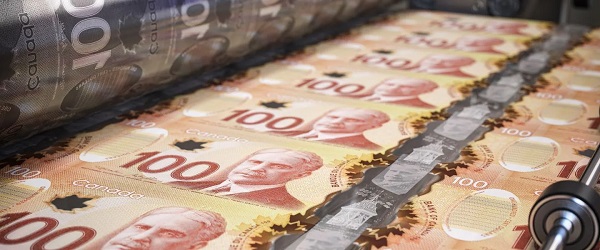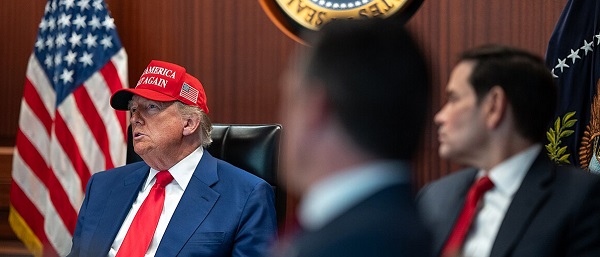Opinion
The dangerous slippery slope of activist-driven climate lawsuits

From the Frontier Centre for Public Policy
Canadians should be concerned climate activists are pushing climate change litigation – or climate change tort cases – at the U.S. state and local levels.
We should all be prepared if this bizarre new legal trend introduced by climate change alarmists comes to Canada.
Canadians have noticed most extreme climate change-inspired ideas – like banning natural gas furnaces – originate from liberal parts of the United States and eventually find their way northwards to our provincial legislatures or city halls.
Lawyers – supported by climate change alarmist organizations – are inventing new legal theories to allow state governments to sue energy companies for alleged contributions to global climate change. Lawyers even attempt to link oil companies to specific extreme weather events.
American observers became alarmed when the Hawaii Supreme Court upheld a lower court ruling in that state allowing oil companies to be sued in state courts for their alleged contribution to climate change. U.S. Legal critics were concerned how this climate change litigation could turn state courts into regulators of global climate change. They argued this was improper given that inter-state and foreign energy policy and commerce is federally regulated.
Canadian judges will have to deal with similar federalism/jurisdictional issues if these nuisance lawsuits come to our courts. Green activists on both sides of the border are determined to handicap the energy sector through the courts and lower levels of government.
Lawyers are basing their legal theories on unjustified certitude regarding climate change. The United Nations Intergovernmental Panel on Climate Change (IPCC) – the most prominent so-called “authority” on climate science – actually presents a nuanced and cautious view of this topic. Politicians and journalists often blame specific weather patterns or events on climate change with little evidence.
Canadian author Joanne Marcotte, in her book Inconvenient Doubts: Climate Change Apocalypse: Really? reminds us that so-called experts miss three key points about IPCC reports: 1) They include varying degrees of confidence and probabilities, rarely mentioned by the media; 2) Some statements refer to specific regions but are often generalized globally; and 3) An extreme weather event becomes a disaster only if a region cannot respond effectively.
Lawyers pushing these anti-oil lawsuits are really saying courts can determine with certitude these oil companies are causing climate change or they can be blamed for specific weather events.
Activists are pushing their anti-energy agenda in the courts because they are losing the war of ideas in democratically elected legislatures. Canadian voters are rejecting these unnecessary and costly green policies because they are being economically crushed by spurious and environmentally pointless carbon taxes that unnecessarily inflate all basics including food and gasoline prices . Activists realize this and want unelected and unaware judges to become arbiters on an incredibly complex and nuanced issue like global climate change.
Drivers should be wary because once courts allow provinces to attack oil companies they may come after them. Activists know transportation is the second biggest contributor to carbon emissions after the energy sector.
Canadian litigants raised climate change at the Supreme Court of Canada when several provincial premiers challenged the constitutionality of the carbon tax – a clever way to bypass democratic legislatures and impose their anti-energy policies on courts and lower levels of government.
Canadian consumers should be able to choose energy sources best for them. We should not allow activists to use courts – as they have in the United States – to impoverish everybody through by imposing extreme and unscientific anti-energy climate policies through the backdoor.
Joseph Quesnel is a Senior Research Fellow with the Frontier Centre for Public Policy.
Business
Pulling back the curtain on the Carney government’s first budget

From the Fraser Institute
By Jake Fuss and Grady Munro
The Carney government will spend more, run larger deficits and accumulate more debt than was previously planned by the Trudeau government.
In the 1939 film the Wizard of Oz, Dorothy and her companions travel to the Emerald City to meet the famous Wizard of Oz who will solve all their problems. When first entering the Wizard’s chambers, the group sees a giant ghostly head that meets their expectations of the “Great and Powerful Oz.” However, later on in the film (much to their disappointment) we learn that the Wizard is nothing more than an ordinary man operating a machine behind a curtain.
Canadians might feel a similar kind of disappointment about the Carney government’s first budget tabled on Tuesday. Prime Minister Carney promised a “very different approach” than that of his predecessor regarding Ottawa’s finances, and at first glance the budget appears to be this new approach. But when you pull back the curtain, it’s simply an escalation of the same failed fiscal policies Canadians have suffered for the last decade.
For context, the Trudeau government’s approach to government finances was record-high levels of spending, persistent deficits and massive debt accumulation. The Trudeau government created a fiscal mess, and as a “responsible fiscal manager” the Carney government has promised to clean it up.
To that end, the Carney government now separates spending into two categories: “operating spending” and “capital investment.” Capital investment includes any spending or tax expenditure (e.g. tax credits and deductions) that contribute to the production of an asset (e.g. infrastructure, machinery or equipment). Operating spending includes everything else, and is supposed to represent “day-to-day” government spending.
The government plans to balance the “operating budget”—meaning it will match operating spending to revenue—by 2028/29, while leaving capital investments to be financed through borrowing. Importantly, when calculating the operating balance, the government counts revenues that are foregone due to tax expenditures that are considered to be capital investments.
To help find the savings needed to balance its operating budget by 2028/29, the government initiated a “Comprehensive Expenditure Review” this past summer—the budget reveals the review’s results. Part of the review included a long overdue reduction in the size of the federal public service, as the government will cut 16,000 positions this year, and reach a total reduction of almost 40,000 by 2028/29 compared to levels seen two years ago. As a result of this spending review, the budget projects spending in 2028/29 will be $12.8 billion lower than it otherwise would have been.
This is the fiscal picture the Carney government is focusing on, and the one it undoubtedly wants Canadians to focus on, too. When taken at face value, balancing the operating budget, initiating a spending review, cutting the federal bureaucracy, and focusing on greater investment would certainly appear to be a different approach than the Trudeau government—which made no meaningful effort to balance the budget or restrain spending during its tenure, grew the bureaucracy, and allowed business investment to collapse under its watch.
But here’s the problem. When you pull back the curtain, all the rhetoric and accounting changes are just a way to obscure the fact the Carney government will spend more, run larger deficits and accumulate more debt than was previously planned by the Trudeau government.
Both operating spending and capital investment (which represents either additional spending or foregone revenue) impact the bottom line, and by separating the two the Carney government is simply obscuring the true state of Ottawa’s finances. If we ignore the government’s sleight of hand and instead compare total government spending against the revenues that are actually collected, the true size of the budget deficit this year is expected to equal $78.3 billion. Not only is that considerably more than the “operating” deficit the government is focusing on, it’s also nearly double the $42.2 billion deficit that was originally planned by the Trudeau government.
The story is similar for years to come. While the Carney government claims it will balance the operating budget by 2028/29, the overall deficit will be $57.9 billion that year. Over the four years from 2025/26 to 2028/29, overall deficits under the Carney government will equal a combined $265.1 billion. In comparison, the Trudeau government had only planned to run deficits equaling a combined $131.4 billion during those same four years—meaning the Carney government plans to borrow more than twice as much as the Trudeau government.
Driving this increase in borrowing is a combination of lower revenues and higher spending. From 2025/26 to 2028/29, the Carney government expects to collect $70.5 billion fewer revenues than the Trudeau government had previously projected. This difference likely comes down to a combination of the economic impact of U.S. tariffs along with various tax measures implemented by the Carney government that lower revenues (including cancelling a proposed increase to capital gains taxes and cutting the bottom federal personal income tax rate).
On the flip side, the Carney government plans to spend $63.4 billion more in total than the Trudeau government due to the introduction of considerable new spending commitments (notably on defence and housing), and the expectation of higher interest payments on its debt. The reality that spending is only set to rise under the Carney government stands in stark contrast to the prime minister’s rhetoric regarding “austerity” and the “ambitious savings” found by the government’s so-called spending review.
Higher spending and larger deficits will help grow the mountain of federal debt. By 2028/29, the Trudeau government had originally projected that total government debt would reach $2.6 trillion—which, based on the budget forecasts, would represent 72.2 per cent of the overall economy. The Carney government’s fiscal plan now puts total federal debt at $2.8 trillion by 2028/29, or 78.6 per cent of the overall economy. For perspective, the last time total federal debt pushed 80 per cent of the economy was during the 1990s when Canada teetered on the brink of a fiscal crisis.
Finally, the government’s approach to spending and the deficit doesn’t seem to be in line with what Canadians wanted to see from this budget. A poll conducted prior to the budget showed that 69 per cent of respondents felt it’s important for the government to balance the budget, compared to just 27 per cent who supported continued deficit spending. In fact, three out of five respondents felt that too much government spending has contributed to the rising cost of living and inflation—the issue they’re most concerned about.
Like a certain Wizard, Prime Minister Carney has made grand promises to fix many of the serious problems facing Canada. At first glance, the Carney government’s first budget may appear to deliver a new plan that will get federal finances back in order. Just pay no attention to the man behind the curtain.
International
The capital of capitalism elects a socialist mayor

New York City — the beating heart of American capitalism — has handed the keys to a socialist. Zohran Mamdani, a 34-year-old Democratic Socialist assemblyman from Queens, captured City Hall on Tuesday night, defeating former Governor Andrew Cuomo and Republican Curtis Sliwa in a bitterly fought three-way contest that upended the city’s political order. The Associated Press called the race less than an hour after polls closed, projecting Mamdani at 50.4% to Cuomo’s 41.3%, with Sliwa finishing a distant third at 7.5%. Mamdani, born in Uganda and raised on Manhattan’s Upper West Side, will become the city’s first Muslim and first openly socialist mayor.
Mamdani’s win marks a generational and ideological break from the city’s past, one that rattled Wall Street, alarmed business leaders, and divided Democrats. A proud member of the Democratic Socialists of America, Mamdani ran as a firebrand reformer promising to “tax the rich” and dismantle the influence of corporate money in city politics — proposals that critics said would cripple New York’s fragile economy. His campaign drew widespread scrutiny for his prior calls to “defund the police” and his harsh criticism of Israel, which led to accusations of antisemitism.
Cuomo’s attempt at a political resurrection fell flat. Despite spending more than $12 million on his independent campaign and receiving support from super PACs pouring in roughly $55 million, the former governor could not overcome the wave of progressive enthusiasm that propelled Mamdani from longshot to frontrunner. In a last-ditch effort to stave off defeat, Cuomo earned late backing from President Trump, outgoing Mayor Eric Adams and a handful of moderate Republicans, including Rep. Mike Lawler, who labeled him “the lesser of two evils.” Even that wasn’t enough.
The election itself was the city’s first serious three-way showdown in decades. Mamdani, Cuomo, and Sliwa clashed repeatedly over crime, affordability, and the future of policing. Cuomo leaned on his executive record and cast himself as a pragmatic problem solver, while Mamdani framed the race as a moral reckoning for a city that, in his words, “forgot who it’s supposed to serve.” His online following, slick digital outreach, and constant street presence helped galvanize younger voters, particularly in Brooklyn and Queens, where turnout surged. Meanwhile, Sliwa — the perennial GOP candidate — failed to broaden his appeal beyond his Guardian Angels base.
As he prepares to take office on January 1, 2026, Mamdani faces steep headwinds. His tax-and-spend agenda will require approval from state lawmakers and Governor Kathy Hochul, who has already rejected the idea of raising taxes. Still, Assembly Speaker Carl Heastie and Senate Majority Leader Andrea Stewart-Cousins have signaled they’ll work with him to advance portions of his sweeping platform. The victory, however, sends a message beyond policy: the city that built capitalism has now chosen a mayor who wants to dismantle it. Whether Zohran Mamdani’s socialist experiment reinvents or wrecks New York will soon be tested in the only arena that matters — reality.
-

 Business1 day ago
Business1 day agoTrump’s Tariffs Have Not Caused Economy To Collapse
-

 Daily Caller1 day ago
Daily Caller1 day agoTrump Reportedly Planning Ground Troops, Drone Strikes On Cartels In Mexico
-

 Daily Caller2 days ago
Daily Caller2 days agoNigeria Would Welcome US Intervention In Massacre Of Christians By Islamic Terror Groups
-

 Alberta1 day ago
Alberta1 day agoAlberta government’s plan will improve access to MRIs and CT scans
-

 Automotive2 days ago
Automotive2 days agoCanada’s EV experiment has FAILED
-

 Alberta2 days ago
Alberta2 days agoCanada’s heavy oil finds new fans as global demand rises
-

 Bruce Dowbiggin2 days ago
Bruce Dowbiggin2 days agoA Story So Good Not Even The Elbows Up Crew Could Ruin It
-

 Addictions2 days ago
Addictions2 days agoThe War on Commonsense Nicotine Regulation












